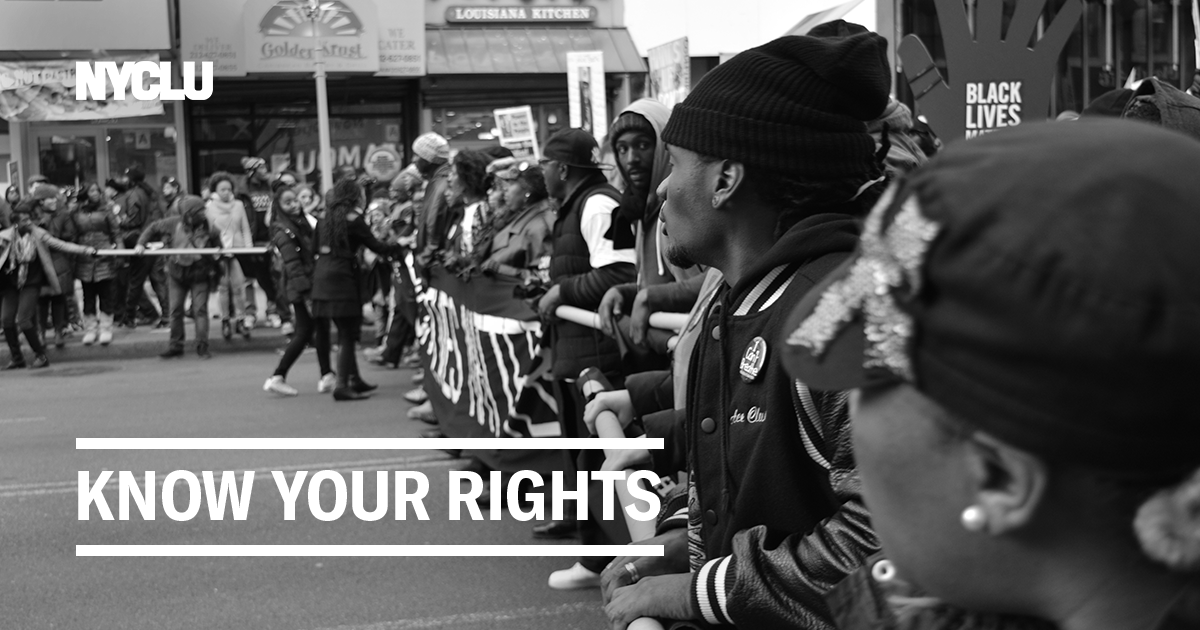Know Your Rights: Students in Higher Education & the First Amendment
Civil Liberties Union

New Yorkers have the constitutional right to engage in peaceful protest activity on public sidewalks and streets, and in public parks. This includes the right to distribute flyers or leaflets; the right to hold press conferences, demonstrations, and rallies; and the right to march on public sidewalks and in public streets.
At the same time, the City imposes restrictions, and in some instances requires a permit, to ensure that demonstrations maintain order, do not have a negative impact on the neighborhood, and keep people from harm.
This KYR is not a replacement for legal advice.
New Yorkers have the constitutional right to engage in peaceful protest activity on public sidewalks and streets, and in public parks. This includes the right to distribute flyers or leaflets; the right to hold press conferences, demonstrations, and rallies; and the right to march on public sidewalks and in public streets.
At the same time, the City imposes restrictions, and in some instances requires a permit, to ensure that demonstrations maintain order, do not have a negative impact on the neighborhood, and keep people from harm
You do not need a permit to:
You need a permit to:
You are entitled to drive or ride as a group on a public street, but if you have 50 or more vehicles or bicycles in the procession, you will need a parade permit from the NYPD. Permit applications are handled the same way as applications for street marches, as described above.
You may use signs at your event, as long as they are not affixed to wooden sticks or plastic or metal poles. Signs cannot be attached to public property, such as trees, light posts, or police barriers.